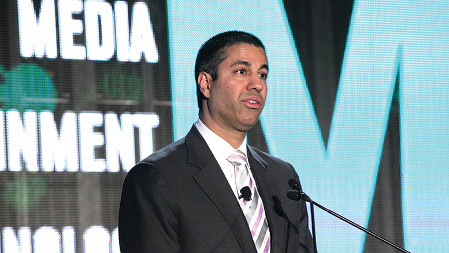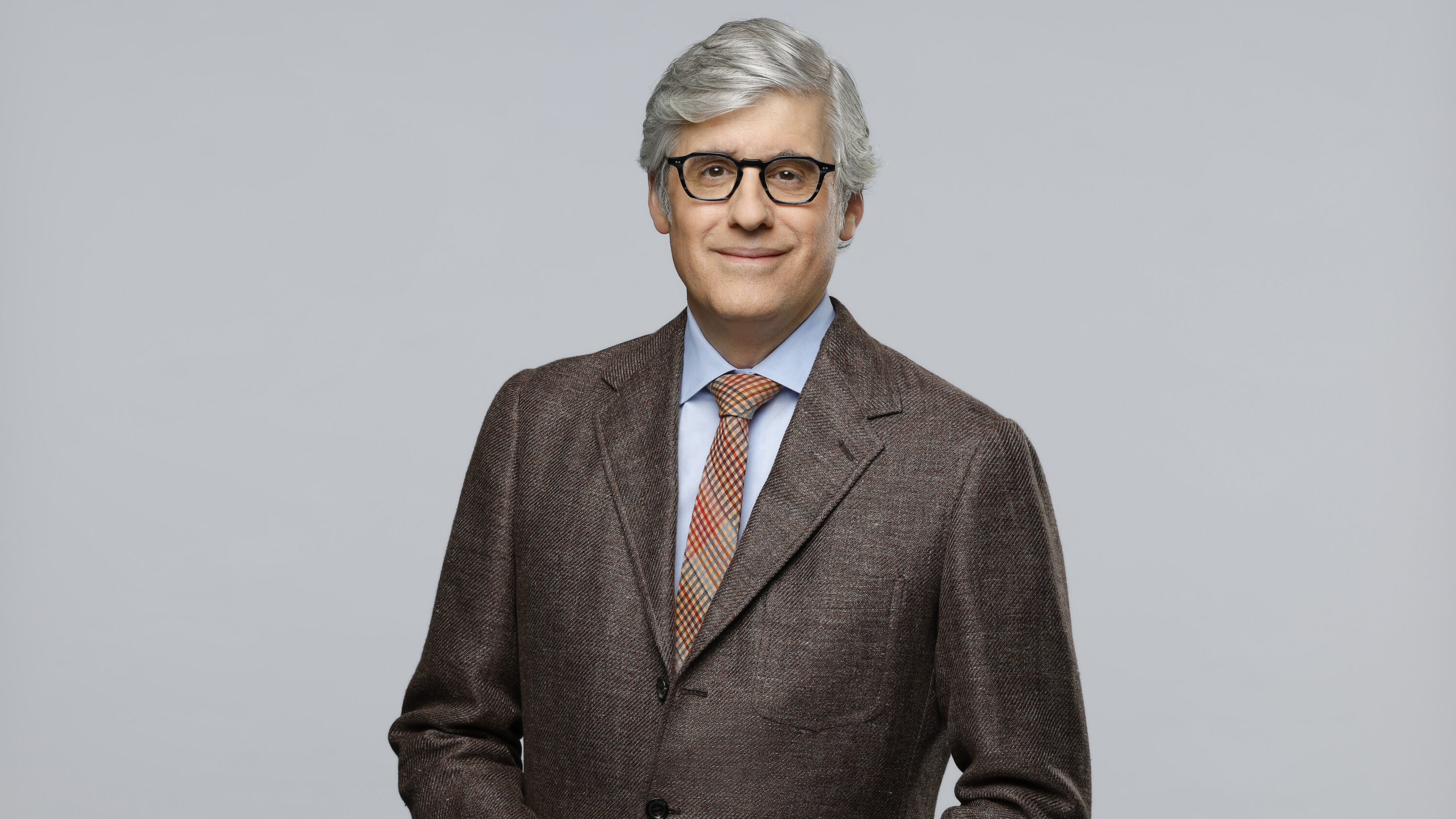FCC Chairman Pledges To Eliminate Outdated Rules
The professional video industry's #1 source for news, trends and product and tech information. Sign up below.
You are now subscribed
Your newsletter sign-up was successful
LAS VEGAS—During his first NAB Show appearance as FCC chairman, Ajit Pai laid out the regulatory philosophy broadcasters have waited for decades to hear.

“The last thing broadcasting needs is outdated rules to stand in its way,” he said to a room full of broadcasters Tuesday. “That’s why I’ll work aggressively to modernize the FCC’s rules, cut unnecessary red tape and give broadcasters more flexibility to serve their audiences… Under my chairmanship, broadcasters won’t be seen as a speed bump.”
He said there are nearly 1,000 pages of media regulations on the FCC’s books and that he’d circulated a public notice among his colleagues that morning to clear out the regulatory cobwebs.
“At the FCC’s May 18 meeting, we will vote on a proposal to start a comprehensive review of FCC regulations” that will include broadcast, cable and satellite, he said.
He proceeded to enumerate some of the regs he considered obsolete, including the main studio rule requiring broadcasters to maintain a studio in their communities of license. The World War II-era rule was crafted to give the public access to station personnel and their public inspection files. Those files are now online, and Pai noted that the primary mode of public communication is now electronic. The chairman also called out media ownership rules.
“Do you take seriously any assessment of the market for news that says, ‘That internet thing — just ignore it?’ Going forward, we’re going to have a much more fact-based discussion about where our media ownership regulations rules are and where they should be.”
Ever the radio guy, having connected to the wider world through the medium as a kid, Pai addressed AM revitalization. Nearly 1,100 AM broadcasters applied for FM translator licenses during the FCC’s first window making them available on the secondary market. Nearly 95 percent were granted, he said, giving one-fifth of the nation’s AM stations the opportunity to extend coverage. Two new FM translator application windows are on deck, and unresolved mutually exclusive applications will proceed to auction as early as this year for Class C and D stations.
The professional video industry's #1 source for news, trends and product and tech information. Sign up below.
Pai said the FCC has made several proposals pertaining to the AM band that he hopes to take up soon, and he gave a shout-out to his colleague Commissioner Mignon Clyburn for her leadership on AM issues.
The chairman then moved on to the recently completed incentive auction. He said while he didn’t agree with all of the policy decisions therein, the endeavor took a tremendous amount of work by FCC staff, whom he credited.
“Having seen their work up close, I can say that they represent the best of public service,” he said. “But we also recognize that this process is far from over.”
Specifically, 987 TV stations now have to move to new channel assignments within a 39-month timeframe. “Part of that involves making sure that no protected television broadcaster is forced to go dark due to circumstances outside of its control,” Pai said. “Obviously, we have a lot of work ahead of us, and to get it done … the FCC, broadcasters and wireless carriers will need to work together closely.”
Pai wrapped up his remarks with an observation from Broadcasting Hall of Famer Vin Scully: “I try to call the play as quickly as I possibly can and let the crowd roar.”
“That’s sound advice for a regulator,” he said. “So long as I have the privilege of serving as FCC chairman, you can be sure that I’ll do my best to get unnecessary rules out of the way so that broadcasters can rev that engine.”
And with that, the crowd roared.
Copyright NAB 2017.
